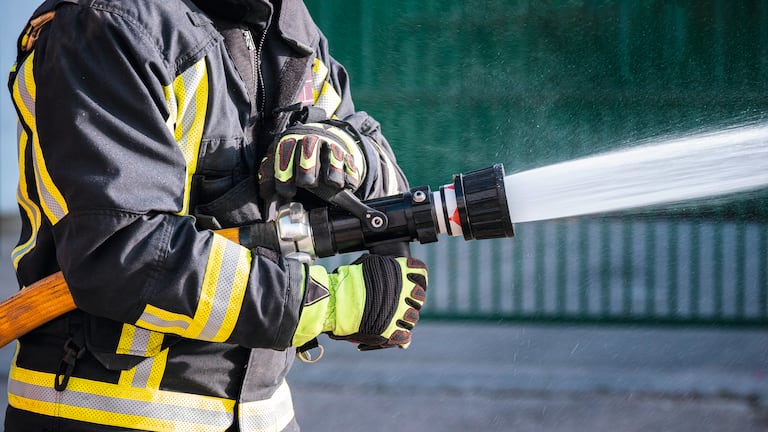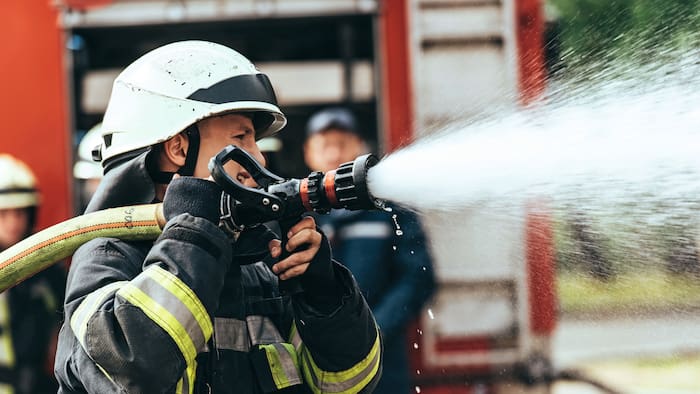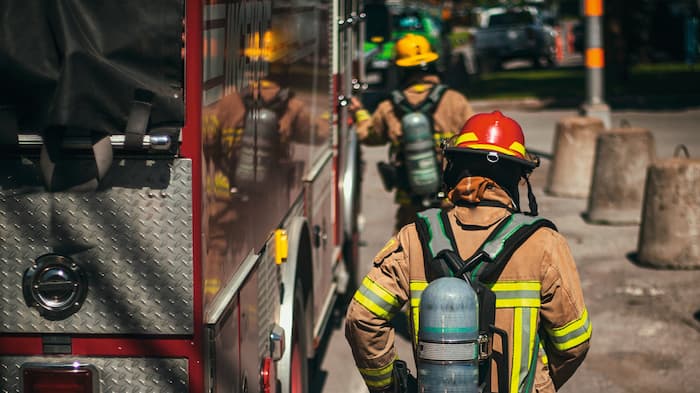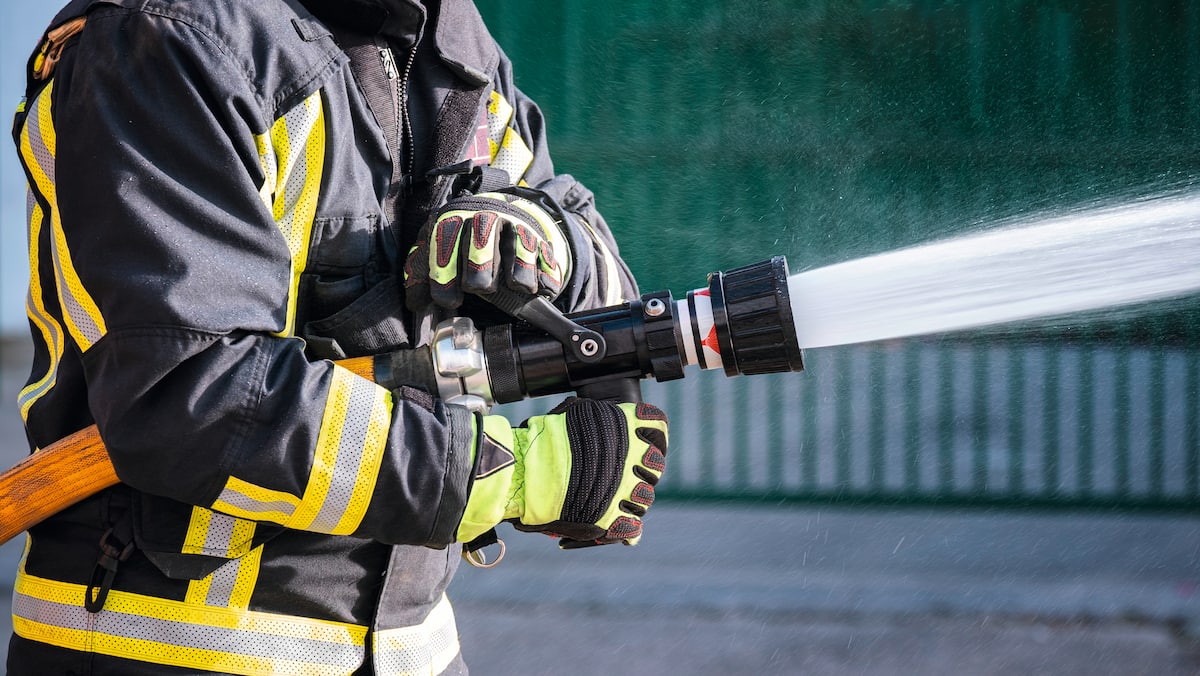
The importance of reprocessed PPE to firefighter mental health & wellbeing
Confidence in emergency situations
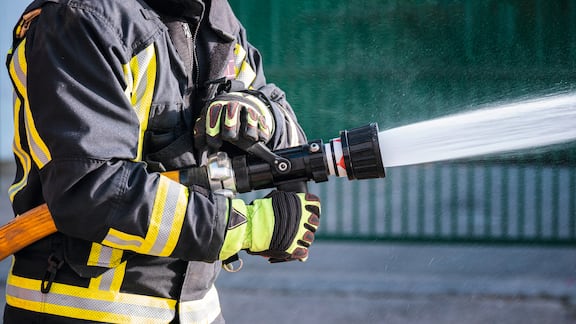
For firefighters, there is a level of composure and concentration needed to perform in emergency settings, and avoiding stress plays a big part in doing so. When firefighters can be sure that they are using clean and properly processed PPE, this can help provide a heightened sense of security and confidence in the protection that their equipment gives them, reducing their stress levels.
According to the Occupational Safety and Health Administration, proper maintenance and cleaning of PPE is vital for ensuring its effectiveness and reducing the risk of exposure to hazardous substances. This can significantly impact firefighters’ mental health and wellbeing be alleviating concerns about potential contamination or infection.
In high-pressure situations, a strong sense of mental clarity is needed for effective response and safety. Properly laundered and processed gear not only protects firefighters from physical harm but also helps to maintain their mental strength, enabling them to focus on the task at hand without the added stress of potential exposure to carcinogens.
Providing a sense of security
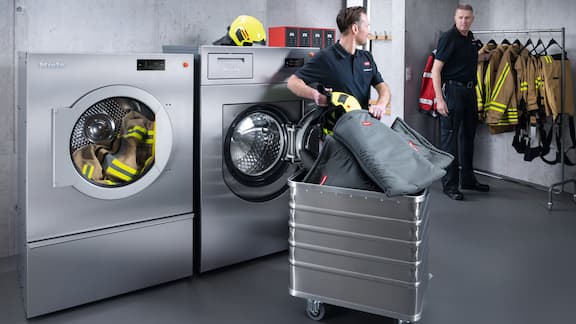
Clean and effective PPE can instil an improved sense of safety and security among firefighters. For a fire fighter, knowing that their gear is free from contaminants or pathogens reduces anxieties tied to potential health risks. Research by The University of Central Lancashire states that after attending incidents, firefighters who remained in their PPE for over four hours after the incident had finished, were twice as likely to report mental health issues.
By ensuring a thorough cleaning and infection control process of firefighter PPE and clothing, such as helmets, masks and jackets, this can significantly influence firefighter mental health and morale, allowing them to focus more on their critical tasks without health-related distractions, ultimately improving their performance when on the job.
A sense of pride
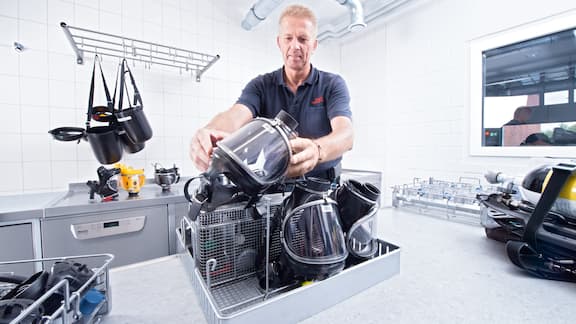
Maintaining clean and well-looked after PPE and clothing presents an opportunity for firefighters to feel pride in their profession. A firefighter’s gear can not only symbolise their commitment and dedication to their job but also showcase the risks they willingly take to protect their local communities. Appropriately maintained gear can also represent the discipline of the firefighting service and community, helping to reinforce a culture of excellence and respect within their department.
In previous times within the fire industry, it was seen as a mark of pride and hard work to have dirt on your uniform or soot on your face. But it is now widely respected that dirty helmets and soot on the face is rather frowned upon and no longer heroic, demonstrating more awareness in firefighters’ minds.
Taking care of physical health
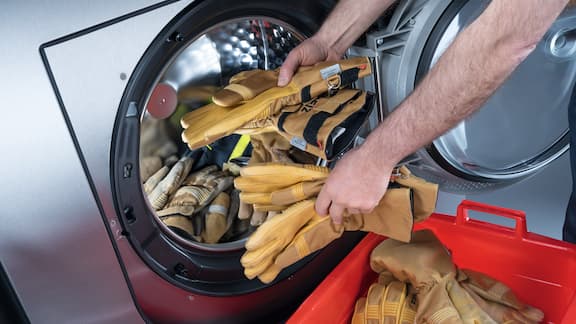
Correctly laundered and processed PPE and clothing significantly reduces the health risks that are associated with firefighting. Exposure to contaminants or pathogens through dirty or improperly laundered gear can lead to a range of health issues, with firefighters facing a 9% increase in cancer diagnoses when compared to the general population.
Proper cleaning and maintenance of PPE by the right professional machinery significantly reduces the risk of healthcare-associated diseases, helping to put the health of firefighters in focus, ultimately increasing the confidence and mental health of firefighters when on the job. By having clear and precise protocols after they return from a call out, this can significantly improve the health and hygiene within fire stations themselves.
By choosing the right commercial solutions to protect firefighters, fire stations can ensure the reliability and longevity of its protective gear. At Miele Professional, we provide high-quality laundry and disinfection solutions such as washing machines, washer-disinfectors and drying cabinets that are designed to meet the rigorous demands of firefighting apparel. Our products ensure thorough cleaning, effective disinfection, and gentle care, persevering the integrity and lifespan of PPE, which in turn promotes improved safety and firefighter mental health and wellbeing.
For more information about how our solutions can support your firefighters, head over to our 360PRO Fire Brigade webpage.
First-hand experiences

The challenges in your job are big - both physically and mentally. How much mental strain would you say your job puts on you? And how do you deal with it personally?
Of course, there is an increased mental strain for me, especially with regard to possible deployments, as well as the correct reworking to immediately restore operational readiness. Personally, I rely entirely on my training and extensive experience, which provide me with a good basis for the challenge in the event of an emergency. It is also very reassuring for me to know that our equipment is 100% reliable and safe. It is cared for and checked by our equipment manager. What's more, I don't have to do the job alone; fire brigades are a team effort and I'm supported by my comrades. I also have a lot of support from my husband and children, who are always there for me and provide a good balance between work and family life.
Safety is the most important thing in the fire brigade. Which 3 things make you feel safe?
Recently, there have been more and more findings in relation to operational hygiene. It gives me a good feeling that we are well positioned with our products. For us, it goes without saying that masks, helmets and protective clothing are cleaned and reprocessed in our in-house products.
That's why my 3 factors for success in an emergency are
- Well-trained and motivated colleagues
- Reliable equipment
- Good team spirit
What would you say: to what extent does correctly and carefully reprocessed protective equipment affect your mental health and performance at work?
Carefully prepared protective equipment is essential in my job, it gives me a sense of security in the event of an alarm so that I can concentrate fully on the situation at hand.
- 1.https://www.nfpa.org/education-and-research/emergency-response/firefighters-and-cancer
- 2.https://clok.uclan.ac.uk/45259/1/s41598-022-24834-x.pdf
- 3.https://www.osha.gov/personal-protective-equipment
